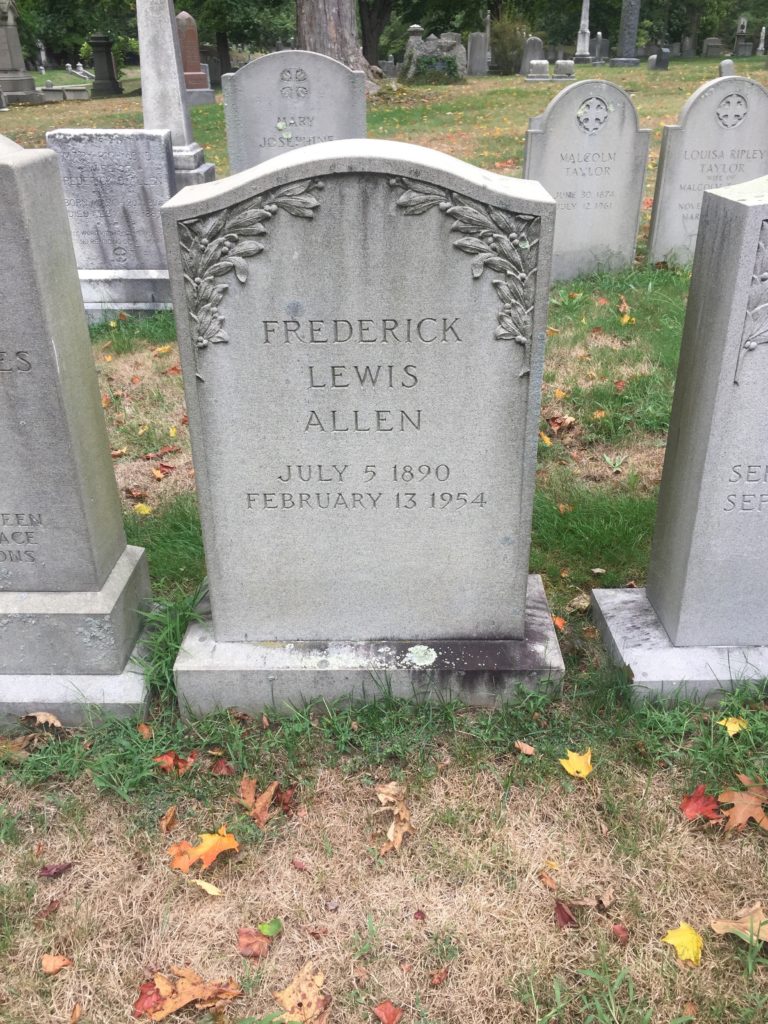Erik Visits an American Grave, Part 729
This is the grave of Frederick Lewis Allen.

Born in Boston in 1890, Allen came from a wealthy background. His father was an Episcopal minister at a fancy Boston church. He went to Groton and then onto Harvard, graduating in 1912. By 1914, he was the assistant editor of the Atlantic Monthly. He went to The Century as managing editor in 1916 and then onto Harper’s in 1923 after stints working for the Council of National Defense in World War I and as Harvard’s publicity manager after the war. He would work at Harper’s for the rest of his life, becoming editor of the magazine in 1941. He became one of the leading literary editors of his time, known for his quality work that ensured Harper’s would remain a leading intellectual journal of its day (very much unlike today). Of course, being an editor, he is the greatest monster in human history, if you are Glenn Greenwald anyway.
In addition to editing the magazine, Allen became part of the coterie of amateur historians that provided a public newly interested in reading about the American past a lot of big narrative books. Allen worked primarily on the period of his lifetime. 1931’s Only Yesterday: An Informal History of the 1920s, was his most famous book. I’m not sure this really counts as history; it’s like me writing a history of the 2010s, which honestly isn’t a terrible idea. Anyway, for Americans who had seen their booming decade turn into total garbage, it was a breezy revisiting of what had happened. 1939’s Since Yesterday did the same for the 1930s and also was a bestseller. He also wrote a biography of J.P. Morgan that was published in 1949 and The Big Change in 1952, a history of the U.S. in the first half of the twentieth century. He was also one of the narrators for the RKO film, The Golden Twenties, which came out in 1950. Allen died in 1954, at the age of 63.
Frederick Lewis Allen is buried in Forest Hills Cemetery, Boston, Massachusetts.
If you would like this series to visit some of the other popular historians of the early 20th century, you can donate to cover the required expenses here. Carl Sandburg is in Galesburg, Illinois and Henry Pringle is in Hastings-on-Hudson, New York. Previous posts in this series are archived here.


